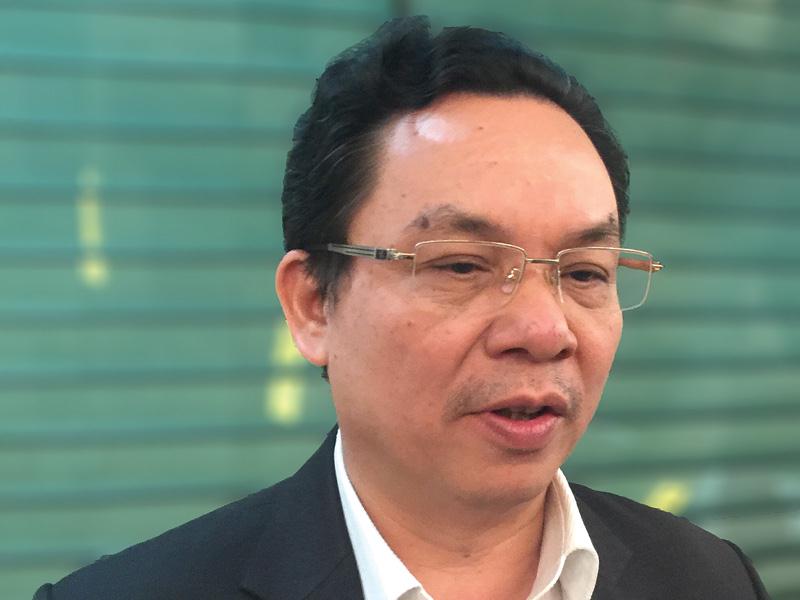Advantages and pitfalls of decentralised SAEZ governance
 |
| PhD Hoang Van Cuong - Member of the NA’s Committee on Economic Affairs |
When it comes to the governance of SAEZs, the debate comes down to the choice between a sharply decentralised and regular decentralised governance model. In your opinion, which alternative holds the greatest merit?
Special zones are clearly demarcated and secured by special administrative management. These are areas that enjoy superior tax and customs incentives and special privileges. There are around 4,500 SAEZs in 140 nations, and not all recount a success story.
There are many ways to lead SAEZs to success, including decentralisation, giving them autonomy, and building up a simplified, effective governance model. There are various factors behind the failure experienced in several countries, such as unfavourable location, high costs, inadequate incentive policies, and shortcomings in decentralisation and management.
Thus, I am in favour of the sharply decentralised governance model. It will open up an especially favourable business and investment climate for startups, innovation, research and development (R&D), services, premium tourism, as well as industrial and logistics development, among others.
Whichever option is chosen, heads of SAEZs will wield highly centralised powers and great authority. Should this be a concern?
The draft law outlined two options for SAEZ governance. The government is in favour of the first option, the one without people’s councils or people’s committees at SAEZs' management authority. The prime minister will appoint heads of SAEZs who will hold various powers to make a decision and manage all socioeconomic and administrative activities at SAEZs.
I think this option will meet the demand for concentrated, dynamic, and flexible management, as well as clearly identify the responsibilities of the heads. Additionally, we need to build mechanisms and sanctions to monitor and control the head’s powers.
How do you think heads of SAEZs should be monitored?
In order to control the heads' powers, the draft law proposed establishing an SAEZ council. This would be an agency established by the prime minister and would be different from people’s councils or people’s committees. This council would include representatives of state agencies, experts, scientists, strategic investors, and the business community.
The three major tasks of the council would be to provide advisory and feedback on important problems that require the heads' decision. They could also issue warnings to the heads of risks and shortcomings of SAEZs, as well as evaluate their management and report to the prime minister. This is the option that decision makers find the most plausible.
The position of the heads will not only include extensive powers, it will also go with a lot of tasks and opportunities for violations. Without exclusion of liability or immunity, would there be anyone willing to fill the position?
I think there should be no exemption from liability for anybody working for the state agencies in SAEZs, including the heads. Violations must be investigated and penalised.
In order to maintain a dynamic and effective governance apparatus at SAEZs, the Law on SAEZs and relevant legal documents should clearly specify the powers and responsibilities of the heads, who will hold various special powers. It is crucial that the heads follow regulations and makes all decisions for the development of SAEZs without private or group interests in mind. If there are any violations, the head will be investigated and penalised without any exemption.
What the stars mean:
★ Poor ★ ★ Promising ★★★ Good ★★★★ Very good ★★★★★ Exceptional
Latest News
More News
- Kurz Vietnam expands Gia Lai factory (February 27, 2026 | 16:37)
- SK Innovation-led consortium wins $2.3 billion LNG project in Nghe An (February 25, 2026 | 07:56)
- THACO opens $70 million manufacturing complex in Danang (February 25, 2026 | 07:54)
- Phu Quoc International Airport expansion approved to meet rising demand (February 24, 2026 | 10:00)
- Bac Giang International Logistics Centre faces land clearance barrier (February 24, 2026 | 08:00)
- Bright prospects abound in European investment (February 19, 2026 | 20:27)
- Internal strengths attest to commitment to progress (February 19, 2026 | 20:13)
- Vietnam, New Zealand seek level-up in ties (February 19, 2026 | 18:06)
- Untapped potential in relations with Indonesia (February 19, 2026 | 17:56)
- German strengths match Vietnamese aspirations (February 19, 2026 | 17:40)
















 Mobile Version
Mobile Version